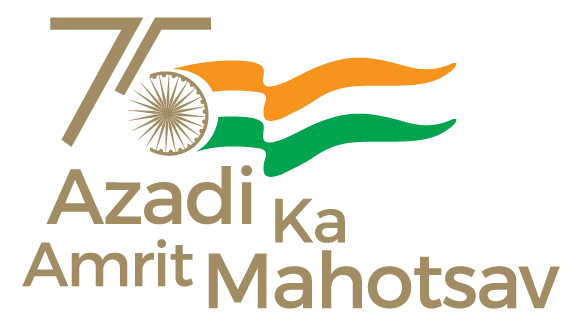Launch of BharatGen: The first Government-funded Multimodal Large Language Model Initiative

BharatGen, a pioneering initiative in generative AI designed to revolutionize public service delivery and boost citizen engagement through developing a suite of foundational models in language, speech and computer vision, was inaugurated in the virtual presence of Dr. Jitendra Singh, Union Minister of State (Independent Charge) for Science and Technology, Minister of State (Independent Charge) for Earth Sciences, MoS PMO, Department of Atomic Energy and Department of Space and MoS Personnel, Public Grievances and Pensions, today in New Delhi. “BharatGen is a proud example of India's commitment to advancing homegrown technologies. It positions India as a global leader in the field of Generative AI, much like our achievements with UPI and other innovations that have transformed various sectors,” said Dr Jitendra Singh during the inauguration. He added that this initiative marks the world's first government-funded Multimodal Large Language Model project focused on creating efficient and inclusive AI in Indian languages. Spearheaded by IIT Bombay under the National Mission on Interdisciplinary Cyber-Physical Systems (NM-ICPS), of the Department of Science and Technology (DST), the initiative will create generative AI systems that can generate high-quality text and multimodal content in various Indian languages. The implementation of the project is by the TIH Foundation for IOT and IOE at IIT Bombay with academic partners from other premier academic Institutes that include IIT Bombay, IIIT Hyderabad, IIT Mandi, IIT Kanpur, IIT Hyderabad, IIM Indore, and IIT Madras will undertake the execution of the project. The Director, IIT Bombay, Prof. Shireesh Kedare was also present at the occasion along with consortium faculty members led by Prof. Ganesh Ramakrishnan. BharatGen will deliver generative AI models and their applications as a public good by prioritizing India's socio-cultural and linguistic diversity. It strives to address India’s broader needs such as social equity, cultural preservation, and linguistic diversity, while ensuring that generative AI reaches all segments of society. “BharatGen is aligned with the goal of making AI accessible to all citizens, using AI not only for industrial and commercial purposes but also to address national priorities like cultural preservation and inclusive technology development, said DST Secretary Professor Abhay Karandikar. The four key distinguishing features of BharatGen are the multilingual and multimodal nature of foundation models; Bhartiya data set based building, and training; open-source platform and development of an ecosystem of generative AI research in the country. The project is expected to be completed in two years along with plans to benefit several government, private, educational, and research institutions. BharatGen will cater to both text and speech, ensuring coverage across India’s diverse linguistic landscape. By training on multilingual datasets, it will deeply capture the nuances of Indian languages, which are often underrepresented in global AI models. Further, unlike models that rely on global datasets, BharatGen focuses on developing processes for collecting and curating India-centric data, ensuring that the country’s diverse languages, dialects, and cultural contexts are accurately represented. This emphasis on data sovereignty strengthens India’s control over its digital resources and narrative. BharatGen aligns with the vision of Atmanirbhar Bharat by creating foundational AI models specifically tailored for India. By developing AI technologies within India, BharatGen reduces reliance on foreign technologies and strengthens the domestic AI ecosystem for startups, industries, and government agencies. Democratizing access to AI through foundational models and detailed technical recipes it allows innovators, researchers, and startups to build AI applications quickly and affordably. A core feature of BharatGen is its focus on data-efficient learning, particularly for Indian languages with limited digital presence. Through fundamental research and collaboration with academic institutions, the initiative will develop models that are effective with minimal data—a critical need for languages underserved by global AI initiatives. BharatGen will also foster a vibrant AI research community through training programs, hackathons, and collaborations with global experts. Looking ahead, BharatGen’s roadmap outlines key milestones up to July 2026. These include extensive AI model development, experimentation, and the establishment of AI benchmarks tailored to India’s needs. BharatGen will also focus on scaling AI adoption across industries and public initiatives. ***** NKR/AG BharatGen, a pioneering initiative in generative AI designed to revolutionize public service delivery and boost citizen engagement through developing a suite of foundational models in language, speech and computer vision, was inaugurated in the virtual presence of Dr. Jitendra Singh, Union Minister of State (Independent Charge) for Science and Technology, Minister of State (Independent Charge) for Earth Sciences, MoS PMO, Department of Atomic Energy and Department of Space and MoS Personnel, Public Grievances and Pensions, today in New Delhi. “BharatGen is a proud example of India's commitment to advancing homegrown technologies. It positions India as a global leader in the field of Generative AI, much like our achievements with UPI and other innovations that have transformed various sectors,” said Dr Jitendra Singh during the inauguration. He added that this initiative marks the world's first government-funded Multimodal Large Language Model project focused on creating efficient and inclusive AI in Indian languages. Spearheaded by IIT Bombay under the National Mission on Interdisciplinary Cyber-Physical Systems (NM-ICPS), of the Department of Science and Technology (DST), the initiative will create generative AI systems that can generate high-quality text and multimodal content in various Indian languages. The implementation of the project is by the TIH Foundation for IOT and IOE at IIT Bombay with academic partners from other premier academic Institutes that include IIT Bombay, IIIT Hyderabad, IIT Mandi, IIT Kanpur, IIT Hyderabad, IIM Indore, and IIT Madras will undertake the execution of the project. The Director, IIT Bombay, Prof. Shireesh Kedare was also present at the occasion along with consortium faculty members led by Prof. Ganesh Ramakrishnan. BharatGen will deliver generative AI models and their applications as a public good by prioritizing India's socio-cultural and linguistic diversity. It strives to address India’s broader needs such as social equity, cultural preservation, and linguistic diversity, while ensuring that generative AI reaches all segments of society. “BharatGen is aligned with the goal of making AI accessible to all citizens, using AI not only for industrial and commercial purposes but also to address national priorities like cultural preservation and inclusive technology development, said DST Secretary Professor Abhay Karandikar. The four key distinguishing features of BharatGen are the multilingual and multimodal nature of foundation models; Bhartiya data set based building, and training; open-source platform and development of an ecosystem of generative AI research in the country. The project is expected to be completed in two years along with plans to benefit several government, private, educational, and research institutions. BharatGen will cater to both text and speech, ensuring coverage across India’s diverse linguistic landscape. By training on multilingual datasets, it will deeply capture the nuances of Indian languages, which are often underrepresented in global AI models. Further, unlike models that rely on global datasets, BharatGen focuses on developing processes for collecting and curating India-centric data, ensuring that the country’s diverse languages, dialects, and cultural contexts are accurately represented. This emphasis on data sovereignty strengthens India’s control over its digital resources and narrative. BharatGen aligns with the vision of Atmanirbhar Bharat by creating foundational AI models specifically tailored for India. By developing AI technologies within India, BharatGen reduces reliance on foreign technologies and strengthens the domestic AI ecosystem for startups, industries, and government agencies. Democratizing access to AI through foundational models and detailed technical recipes it allows innovators, researchers, and startups to build AI applications quickly and affordably. A core feature of BharatGen is its focus on data-efficient learning, particularly for Indian languages with limited digital presence. Through fundamental research and collaboration with academic institutions, the initiative will develop models that are effective with minimal data—a critical need for languages underserved by global AI initiatives. BharatGen will also foster a vibrant AI research community through training programs, hackathons, and collaborations with global experts. Looking ahead, BharatGen’s roadmap outlines key milestones up to July 2026. These include extensive AI model development, experimentation, and the establishment of AI benchmarks tailored to India’s needs. BharatGen will also focus on scaling AI adoption across industries and public initiatives. ***** NKR/AG










